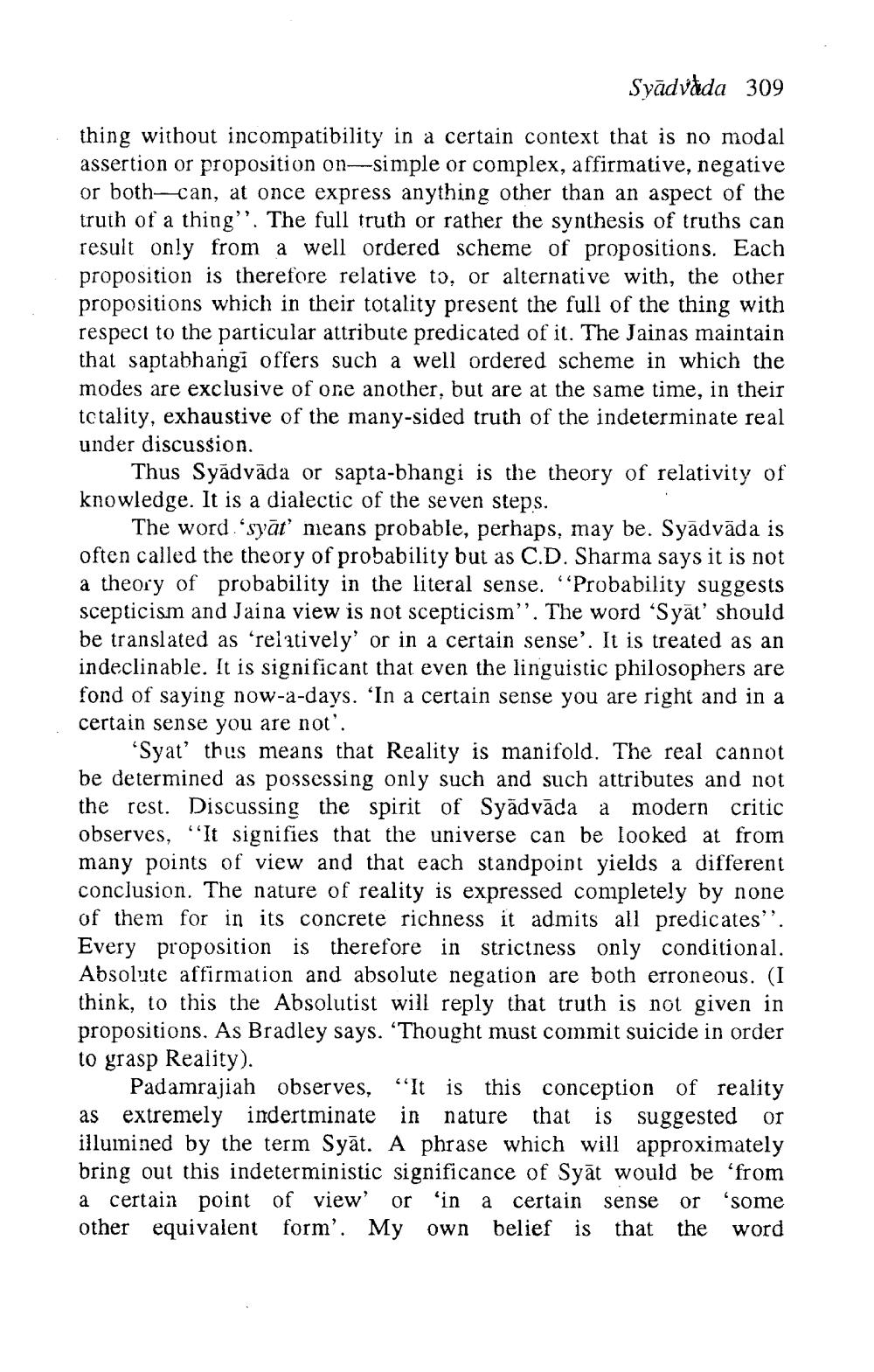________________
Syādváda 309
thing without incompatibility in a certain context that is no modal assertion or proposition on-simple or complex, affirmative, negative or both can, at once express anything other than an aspect of the truth of a thing'. The full truth or rather the synthesis of truths can result only from a well ordered scheme of propositions. Each proposition is therefore relative to, or alternative with, the other propositions which in their totality present the full of the thing with respect to the particular attribute predicated of it. The Jainas maintain that saptabhangi offers such a well ordered scheme in which the modes are exclusive of one another, but are at the same time, in their totality, exhaustive of the many-sided truth of the indeterminate real under discussion.
Thus Syādvāda or sapta-bhangi is the theory of relativity of knowledge. It is a dialectic of the seven steps.
The word 'syāt' means probable, perhaps, may be. Syadvāda is often called the theory of probability but as C.D. Sharma says it is not
theory of probability in the literal sense. “Probability suggests scepticism and Jaina view is not scepticism'. The word 'Syat' should be translated as 'relatively or in a certain sense'. It is treated as an indeclinable. It is significant that even the linguistic philosophers are fond of saying now-a-days. 'In a certain sense you are right and in a certain sense you are not'.
‘Syat thus means that Reality is manifold. The real cannot be determined as possessing only such and such attributes and not the rest. Discussing the spirit of Syädvāda a modern critic observes, “It signifies that the universe can be looked at from many points of view and that each standpoint yields a different conclusion. The nature of reality is expressed completely by none of them for in its concrete richness it admits all predicates". Every proposition is therefore in strictness only conditional. Absolute affirmation and absolute negation are both erroneous. (I think, to this the Absolutist will reply that truth is not given in propositions. As Bradley says. “Thought must commit suicide in order to grasp Reality).
Padamrajiah observes, “It is this conception of reality as extremely indertminate in nature that is suggested or illumined by the term Syāt. A phrase which will approximately bring out this indeterministic significance of Syāt would be ‘from a certain point of view' or 'in a certain sense or 'some other equivalent form'. My own belief is that the word




